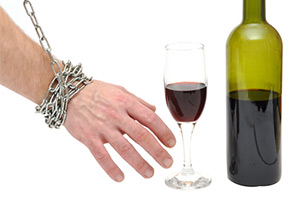Many of these signs can carry on for weeks after getting sober. Delirium Tremens causes demise in a projected 1% around 5% of individuals with this liquor withdrawal symptom and is indicated by feverishness, accelerated heartbeat, and confusion.
Even though the outward symptoms seem delicate, it is important to get therapy the moment possible because the withdrawal symptoms may escalate fast and become serious in a short place of time. Medical personnel can administer remedies to lower the intensity of liquor withdrawal and actually reduce DTs and seizures. When you have had liquor withdrawal before or have problems with respiratory or cardiac diseases, have any infections or have experienced seizures previously, it’s important that you seek medical guidance as soon as possible.
Symptoms of liquor withdrawal such as feverishness, hallucinations, frustration, abnormal pulse, and seizures is highly recommended an emergency drug rehab south florida. Anyone struggling with alcohol withdrawal wants immediate medical interest and must be taken to the nearest disaster therapy center or emergency personnel must certanly be called to scene.
Neurotransmitters, compounds responsible for sign of communications in the brain, are disrupted by alcohol. Excessive drinking on a regular basis and prolonged heavy drinking trigger reduction of the head chemicals. Get the neurotransmitter GABA for instance. Here is the neurotransmitter that produces us feel peaceful and relaxed. Exorbitant alcohol use suppresses that substance to this kind of degree that bigger and larger amounts of liquor are required to achieve the same emotion from the narcotic. That is called tolerance. The neurotransmitter, glutamate, triggers the thoughts of excitability inside our brains. Your body creates a higher amount of glutamate in heavy users to compensate for the elimination aftereffect of the alcohol in the bloodstream.
Persistent lovers who abruptly drastically limit their liquor intake or stop altogether instantly find themselves confronted with mind hyper-excitability. The body remains making large amounts of neurotransmitters but they are maybe not being suppressed by the alcohol anymore. This causes alcohol withdrawal indicators such as agitation, panic, seizures, irritability and delirium tremens. These effects are the opposite of those connected with consuming alcohol.
The extent of the alcohol withdrawal signs is strongly correlated with the time period anyone has been drinking and how much they drink. You can start encountering moderate liquor withdrawal signs such a thing from 6 to 12 hours subsequent for your requirements having had your last alcoholic beverage. Your blood liquor level can always be reasonably high only at that stage.
Following a period of 12 to 24 hours subsequent you having had your last consume, you may find that you experience hallucinations. They are often aesthetic but can be tactile or auditory. Most hallucinations disappear within a 48 time period. This is referred to as alcoholic hallucinosis but shouldn’t be confused with hallucinations skilled when suffering from delirium tremens. Alcohol withdrawal victims are often conscious these hallucinations are not real.
Within 24 to 48 hours future to the last alcoholic cocktail being used there’s a threat of seizures, even though these can really start within 2 hours following anyone stops drinking. People who have gone through detoxification previously or have had past seizures are at a much higher risk. Delirium tremens can start any such thing from 48 to 72 hours following the person has ended drinking. Those who suffer from different medical illnesses, are aged, have reduced liver purpose or who’ve had seizures during previous withdrawals are in large threat of creating delirium tremens.
To evaluate whether you are struggling with liquor withdrawal syndrome, your medical practitioner will need to acquire a complete medical history including the length of time you have been a enthusiast and the quantity you typically imbibe. He will even have to know as soon as your last drink was and if you have suffered from liquor withdrawal in the past. You may also be questioned on your own medical history and whether you are currently suffering from psychological or physical health conditions. A doctor will also need to know if you abuse different substances.
